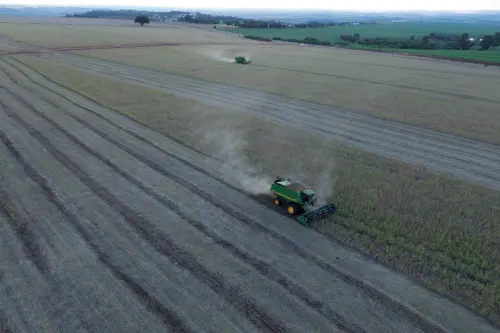Introduction
Soybean seed piracy in Brazil results in annual losses of 10 billion reais, according to a study by CropLife Brasil and Celeres Consultoria.
Context
The findings highlight the challenges faced by seed, chemical, and biotechnology companies operating in Brazil, the world's largest producer and exporter of soybeans. The country competes with the United States and Argentina in global markets, primarily selling its soybeans for processing.
Developments
- Pirated soybean seeds account for 11% of the area planted with soybeans in Brazil, based on planting data for the 2023/24 season.
- The total area planted with soy was 46.15 million hectares (114.039 million acres), according to figures from the national crop agency, Conab.
- For the 2024/2025 season, the nation’s soybean area is projected to be 47.45 million hectares.
- The survey estimates that around 1 billion reais could be lost in taxes over the next decade due to seed piracy.
- Additionally, tackling seed piracy could lead to an increase in investments to enhance seed varieties by 900 million reais over the next ten years.
Conclusion
CropLife represents seed companies, biotechnology firms, and producers of pesticides and bioinputs.
